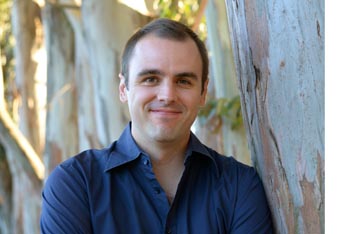Campus News
History grad student to study in Japan on Fulbright-Hays fellowship
Dustin Wright, a Ph.D. student in the UCSC History Department, has received a $43,800 Fulbright-Hays doctoral fellowship to pursue research in Japan.

Wright will spend all of next year abroad working on his dissertation and will be affiliated with Waseda University in Tokyo.
The Fulbright-Hays grants are awarded by the U.S. Department of Education to support research and training efforts overseas which focus on non-Western studies.
“My project looks at the histories of Japanese communities around U.S. military bases,” said Wright.
“I will spend the bulk of my time scouring the bevy of archives and libraries that can be found in Tokyo, but will also make an extended research trip to the city of Iwakuni, just south of Hiroshima,” he added.
Wright earned his B.A. at Northern Arizona University, where he studied International Affairs. During that time, he began learning Japanese and eventually studied abroad, going on to teach English in Japan after graduating. He also completed an M.A. in Asian Studies at San Diego State University.
Now in the fourth year of the Ph.D program in history at UC Santa Cruz, Wright said the campus has had a marked influence on him.
“Studying at UCSC continues to be a deeply profound education for me,” Wright noted.
“I was drawn to the history program here because I became increasingly less interested in the larger political questions around the U.S.-Japan relationship. I wanted to know more about the people who lived around those U.S. military bases.”
“What I found at UCSC was a diverse group of professors and students who were interested in the histories of the people who feel the brunt of state power, but rarely have a place in the official record,” he added.
Wright said he has already spent a lot of time exploring military bases throughout Japan in previous trips to the country.
“I noticed that walking along the barbed-wire fence around an American military base in Tokyo feels almost like walking along some sort of space-time-warp,” said Wright.
“The U.S. side looks like a Cold War theme park. But on the Japanese side, you see what is often regarded as one of the most advanced and wealthiest nations on earth. The striking disparities between these two spaces are very interesting to me.”
Wright said he is looking forward to meeting with Japanese historians who are also interested in questions of urban and rural spaces, as well as the topic of imperialism. He has also met a wide variety of peace activists in his travels throughout Japan, and plans to incorporate their own stories into his project.
After spending 2013 gathering materials and interviews, Wright plans to come back to Santa Cruz and write his dissertation. His goal is to someday get a job as a professor of Japanese or East Asian history.
“I love teaching and being challenged by students’ questions,” said Wright. “In fact, my dissertation project has in many ways been influenced by conversations with my students.”
“Leaving Santa Cruz sort of makes my receiving the Fulbright-Hays a little bittersweet,” Wright added. “Don’t get me wrong–I’m thrilled that I get to go and do the research that I love, and I fully embrace everything that goes along with a vibrant urban setting like the Tokyo megalopolis. But I also love the redwoods and bobcats.”